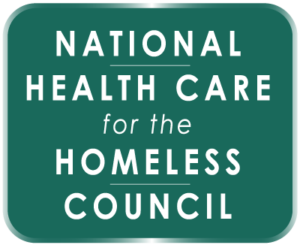Advocacy
ADVOCACY
Advocacy for public policy change is fundamental to medical respite care programs. Not only do they serve a vulnerable population whose needs have been overlooked by the broader system, but they tend to be unfamiliar service models to stakeholders.
Best Practices
BEST PRACTICES
Medical respite care is a unique and growing health care and transitional housing service for persons experiencing homelessness. Although it is a relatively new intervention, there is already emerging evidence to support and inform best practices for delivering care within medical respite care settings.
Charrette Facilitation
CHARRETTE FACILITATION
When individuals or groups are considering the start-up or expansion of a medical respite care program, NIMRC recommends a “charrette facilitation” or “community conversation” that engages key stakeholders involved in the process.
Consulting
CONSULTING
NIMRC offers customized consulting using its broadly experienced in-house staff as well highly qualified individuals and organizations located in various regions of the country who have been carefully vetted prior to being invited to be serve on NIMRC’s diverse team of Affiliate Consultants.
Data Sharing
DATA SHARING
To raise awareness and gain community buy-in, medical respite care programs must demonstrate with evidence how medical respite care adds value to health systems and facilitates a better continuum of care for very vulnerable clients. It is common for medical respite care programs to share data with partnering hospitals, health care providers, managed care organizations, and other community service providers.
Operating Principles
IMPLEMENTATION RESEARCH
Implementing best practices for medical respite care requires knowledge and understanding of current research. A critical role of NIMRC is to assist developing and existing medical respite care programs in identifying current evidence and applying the evidence to support their programs.
OPERATING PRINCIPLES
Medical respite care was born out of the health care for the homeless movement. The primary purpose of medical respite care is to provide a safe place for people to rest, recover, and heal while accessing wrap-around services and medical care. However, medical respite care programs treat the whole person, not just their illness or injury.
Outcome Measures
OUTCOME MEASURES
The integrity of a medical respite care program rests on its ability to provide meaningful and quality services to a complex population. Its sustainability relies on the extent to which it can demonstrate that ability. Clearly defined outcome measures and data collection protocols are imperative to help programs tell the story of how their services have positively impacted the lives of their clients.
Program Design
PROGRAM DESIGN
Program design is an essential part of the medical respite care development process. Although the core of medical respite care is to provide a safe place for recovery and recuperation for persons experiencing homelessness, the design of programs can vary significantly.
Public Policy Reform
PUBLIC POLICY REFORM
Medical respite care programs will be significantly impacted by federal, state, and local public policies. These policies will determine what funding is available for specific services, the stakeholders most likely to be interested in partnering, and the opportunities available to integrate a medical respite care program into the community’s larger system of care.
Start-Up and Expansion
START-UP AND EXPANSION
Initiating a medical respite care program may initially seem to be a daunting process. However, program developers are likely seeking to initiate the process after observing a significant need for a medical respite care program in their community.
Strategic & Operational Planning
STRATEGIC & OPERATIONAL PLANNING
When considering strategic and operational planning for a medical respite care program, communities need to consider several factors. Creating a sustainable medical respite care program requires diligent planning and in-depth analysis of community resources, needs, and potential partners.
Systems Change
SYSTEMS CHANGE
Communities across the country are struggling with how to best meet the health care needs of people experiencing homelessness. Medical respite care adds value to health systems and facilitates a better continuum of care for very vulnerable patients.
Technical Assistance
TECHNICAL ASSISTANCE
NHCHC and NIMRC provide in-depth technical assistance to communities interested in building or expanding medical respite care services. Technical assistance provides an opportunity for communities to connect with experts in the field and access resources and advice that specifically addresses the challenges they may be facing locally.
Training
TRAINING
The mission of NIMRC is to expand medical respite care and robust training and technical assistance services are integral to achieving that mission. NIMRC is home to state of the field resources and educational materials on developing and implementing medical respite care services.
Translational Research
To request any of NIMRC’s services, please contact Julia Dobbins, Director of Medical Respite Care, at jdobbins@nhchc.org or (615) 226-2292 ext. 232 with a description of your needs and the timeframe. You may also complete this request form. We will contact you to formulate a quote based on your needs.

